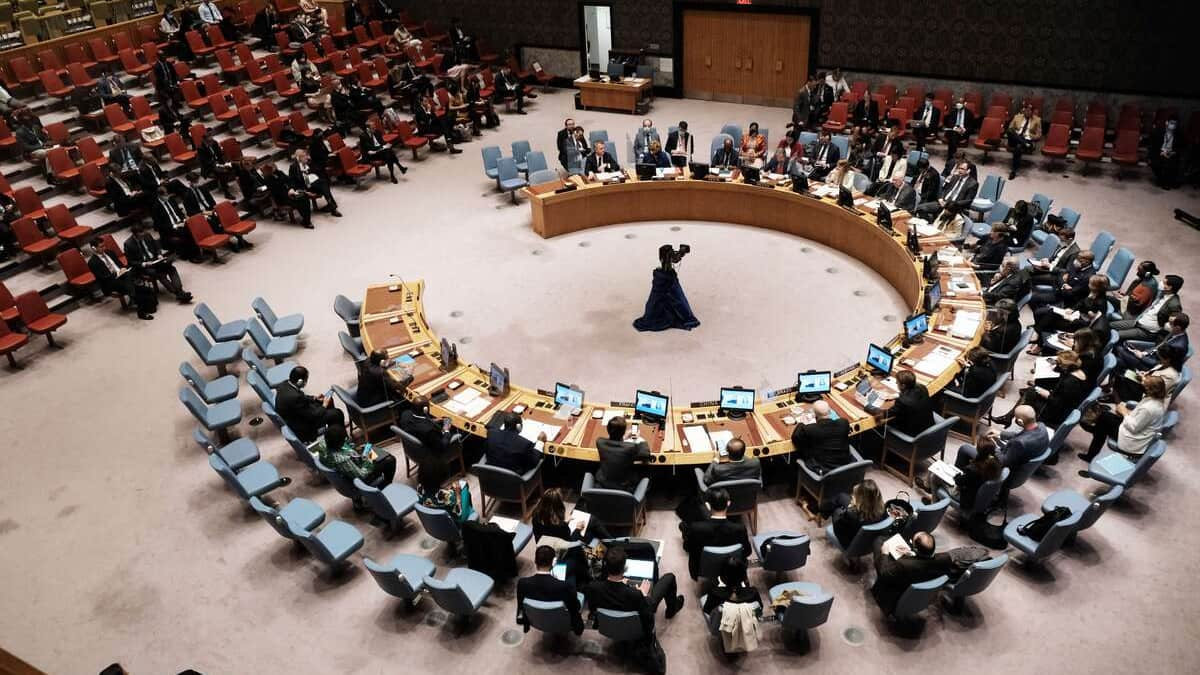
The UN Security Council on Friday approved a unanimous statement – the first since Russia’s invasion of Ukraine on February 24 – giving “strong support” to the organization’s secretary-general “in the search for a peaceful solution” to the war.
• Read also: direct | The 72nd day of the war in Ukraine
• Read also: 50 civilians evacuated from the Azovstal plant in Mariupol
• Read also: Montreal: a blessed egg for Ukrainian society
The declaration, written by Norway and Mexico, does not go so far as to explicitly support the mediation of Antonio Guterres (who has offered his good offices for this), as provided in the first version of the text negotiated since Thursday.
Asked why Russia, which has been blocking the Security Council since February, agreed to this text, a diplomat, speaking on condition of anonymity, replied to AFP: “The important thing has been removed.”
However, the statement represents the first evidence of unity from the Security Council since the beginning of the war. At the end of February, Moscow vetoed a resolution calling on Russia to return its army to Russian soil.
“Today, for the first time, the Security Council spoke with one voice for peace in Ukraine,” the UN Secretary-General said in a statement. “The world must unite to silence the guns and uphold the values of the Charter of the United Nations” and “I will continue to do everything in my power to save lives, alleviate suffering and find a path to peace,” added António Guterres.
For the Mexican ambassador to the United Nations, Juan Ramon de la Fuente, this “first step (…) points in the right direction”. “It is encouraging to see diplomacy taking its place in the council,” he said, also referring to peace efforts, that “quiet diplomacy is sometimes more effective than a lot of rhetoric.”
He also welcomed his Norwegian counterpart Mona Gul, “This is the first unanimous decision by the Council since the beginning of this horrific war in Ukraine.” “The needs and suffering of the Ukrainian people require the utmost effort from the United Nations, both from the Council and the Secretary-General and from the United Nations system as such,” she added.
Very briefly, the adopted text states that “the Security Council expresses its deep concern with regard to the maintenance of peace and security in Ukraine”. The 15 members of the Council also note that “all Member States have undertaken, under the Charter of the United Nations, the obligation to settle their international disputes by peaceful means.”
Marginalized since the beginning of the conflict, the United Nations has not established itself as a potential mediator for a peaceful settlement of the conflict, whose mission is to ensure peace in the world. It is interfering in Ukraine and neighboring countries in a role that has hitherto been essentially humanitarian.
Antonio Guterres recently visited, for the first time since the beginning of the conflict in Russia and Ukraine, a double visit that enabled him to evacuate several hundred civilians from the Ukrainian port city of Mariupol.
The United Nations announced on Friday that its president would return to the region on Monday and Tuesday for a visit to Moldova, which hosts nearly half a million Ukrainian refugees. During his stay, he will visit a refugee center run with the assistance of the United Nations for the benefit of women, children and youth in particular.
Since mid-April, the United Nations has been trying to create a “humanitarian contact group” that would bring Ukraine, Russia and the United Nations around one table. To no avail so far. “We continue to explore ways to bring parties to conflict together in a sustainable and coherent format” to “discuss humanitarian issues through a humanitarian liaison group,” UN spokesman Stephane Dujarric said Friday.
He added that the UN Under-Secretary-General for Humanitarian Affairs Martin Griffiths will travel to Turkey on Monday “to discuss this issue with the Turkish authorities.” Turkey brought together Ukrainian and Russian negotiators in March, and the United Nations had hoped until recently that the country would welcome the “humanitarian contact group” it was trying to form.






